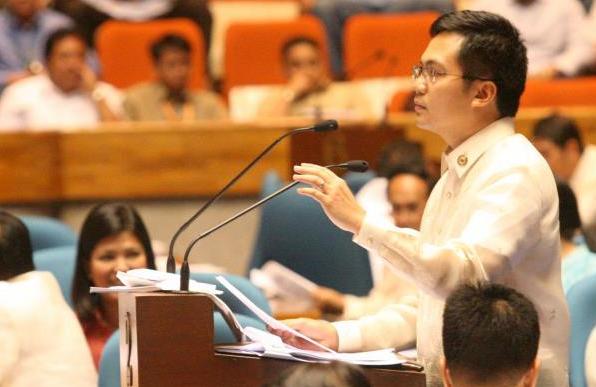
Rep. Karlo Alexei Nograles (Photo from his Facebook account)
The House of Representatives has begun plenary deliberations on the proposed P3.787-trillion budget for 2018.
In his sponsorship speech,Rep. Karlo Alexei Nograles, appropriations committee chairman, touted that the validity of appropriations would be cut to one year, from the current two, to ensure government agencies would spend their allocations right away and deter underspending.
“By cutting short the validity of appropriations to one year we shall strengthen discipline and accountability among agencies, while enhancing congressional power over the purse, especially as regards the use of savings in appropriations,” Nograles said.
He added the budget “follows credible and disciplined fiscal policy” and would abide by the golden rule of loans: “We will only borrow to invest and not to fund current, non-productive spending.”
Government spending levels will be increased by an average of 12.9 percent from 2017 to 2022 to achieve a medium-term spending plan equivalent to 20.8 percent of the gross domestic product.
To expand fiscal space to fund infrastructure development, health and education, Nograles said the budget allows for a higher deficit ceiling of P309 billion.
During the course of the debate, Rep. Joey Salceda, appropriations committee vice chairman, said the country would borrow P888 billion for the next year. Of that amount, P66.9 billion would allocated to pay for the country’s maturing loan obligations.
Grilled by Baguio City Rep. Mark Go and later Minority Floor Leader Danilo Suarez, Salceda defended the National Economic and Development Authority’s allocations.
He justified the foreign loans as having low 5-percent interest rates, especially when compared to returns in terms of new infrastructure and facilities as much of the borrowings would be spent on capital outlay.
“The rate of return in a highway, for example, its return is higher than the interest. As long as the return is higher than the interest, [loans are] valid to empower the government to grow the economy,” Salceda said.
“Essentially, we’re borrowing so that the future generation will have their own capacity,” he added.
Salceda also said the Philippines is one of the countries in the world with the least debt burden, equivalent to 44.2 percent of the GDP, down from 114 percent in 2004. Developed countries such as Japan, Italy and the United States have debt burdens of more than 100 percent of their GDPs, he said. /atm